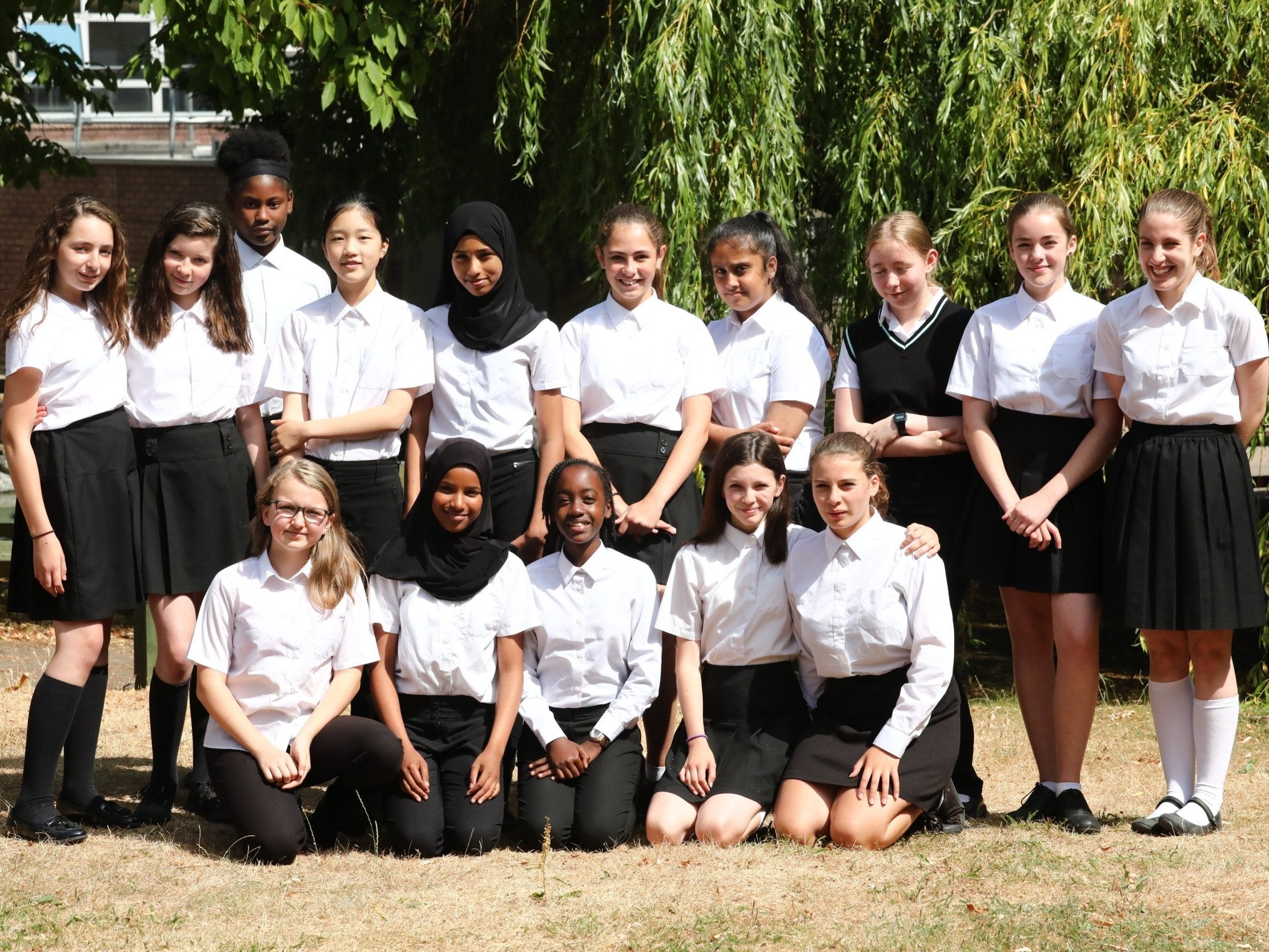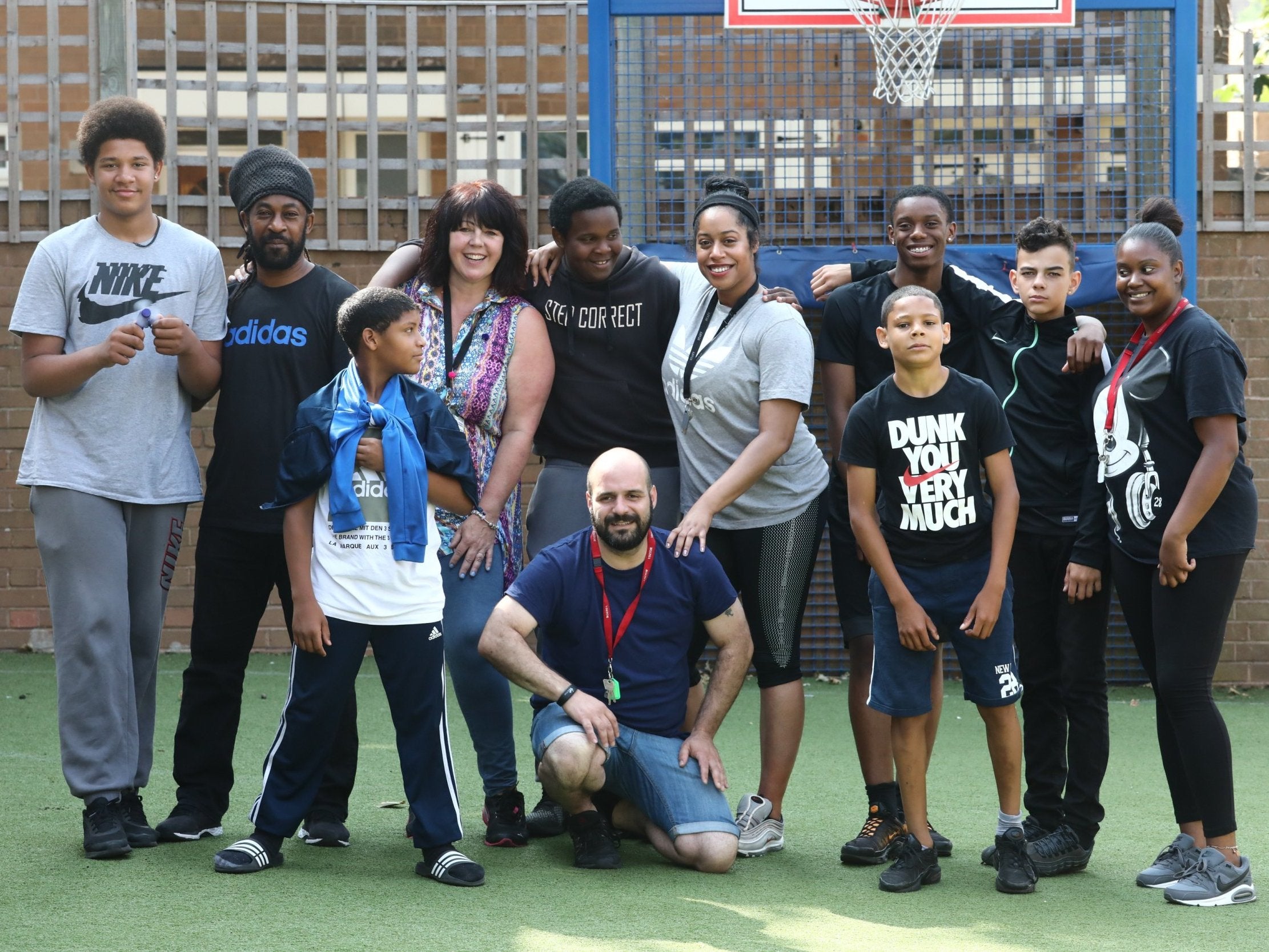Learn to Live: The London schools who have twinned with classrooms around the world
Four schools are spearheading our Learn to Live project

Your support helps us to tell the story
From reproductive rights to climate change to Big Tech, The Independent is on the ground when the story is developing. Whether it's investigating the financials of Elon Musk's pro-Trump PAC or producing our latest documentary, 'The A Word', which shines a light on the American women fighting for reproductive rights, we know how important it is to parse out the facts from the messaging.
At such a critical moment in US history, we need reporters on the ground. Your donation allows us to keep sending journalists to speak to both sides of the story.
The Independent is trusted by Americans across the entire political spectrum. And unlike many other quality news outlets, we choose not to lock Americans out of our reporting and analysis with paywalls. We believe quality journalism should be available to everyone, paid for by those who can afford it.
Your support makes all the difference.Pupils at the four London schools at the heart of our campaign today spoke of their excitement at linking up with children in Jordan, Iraq and the Central African Republic.
The two secondary schools, a primary and a pupil referral unit are spearheading the Learn to Live project.
Harriet Webster, 13, from one of the quartet, Hornsey School for Girls, said: “We sometimes take it for granted that all we have to do to get any job we like is take the GCSEs, go to university and then get a job in that field. But children in camps have to do so much.
“We don’t realise how lucky we are.”
Hornsey School for Girls
A year nine class of teenagers aged 13 and 14 has been twinned with girls from a school in the Zaatari refugee camp in Jordan.
They were chosen because the class is particularly politically active, with pupils last year organising a fundraiser for refugees arriving in their community.
During their introductory lesson about War Child, they were keen to know more about the lives of the girls they will be linking with.
Class teacher Charlotte Clarke said “This group are quite politically engaged and are vocal about issues. They care passionately about their rights and other people’s rights.”

Naila Amegashitsi, 13 said: “I want to help as much as I can. By learning more about [the situation in Zaatari] I can try to do that.
“I like to think the people there are the same as us. They have been through a lot more. It will be interesting to see if they like the same things that we do and we probably do have a lot in common.
“We are fortunate to have all these opportunities.”
Honey Hargreaves, 13, said: “I think it’s a really interesting campaign and it’s a great opportunity and I am excited about it.”
Children at the comprehensive come from a broad range of socio-economic and ethnic backgrounds. In most classes there are children who speak English as a second or third language.
The school has a dedicated noticeboard telling the “immigrant stories” of teachers and students who have written about where they come from originally.
Carshalton Boys Sports College
The Carshalton boys were fascinated by the introductory lesson they received about the campaign.
They were able to easily point out Jordan on a map of the world and asked a series of questions about the lives of the boys they are twinning with.
They wanted to know what the food is like in the refugee camp, what the mental health of the refugees is like and how they earn money.
The boys also wanted to know what happens to the refugees if they try to escape the camp and whether girls there can go to school. They were also interested to know if the children played football in the camp.
A year nine citizenship class of 13 and 14 year old boys is being twinned with boys from the Zaatari refugee camp in Jordan. They will spend around three hours a week learning about their lives and taking part in the campaign.
Tristan Slevin, 14, said: “It seems to be quite interesting and a good thing to learn about. I have never encountered anyone from a refugee background and I am excited about that.”
George Abbott, 14, said: “I am interested in this subject. I can’t empathise but I can sympathise. I feel lucky to be able to experience this and for the life I live. I know so many people are pessimistic about the world they live in but people overthink things. I think people should be grateful.
“This campaign might be upsetting but I don’t know yet. It might be negative to start with but we will see the happy side as well.”
Francis Barber Pupil referral unit, Wandsworth
This PRU is for boys and girls who have been excluded from mainstream school.
The pupils are very interested in War Child, and had previously completed a project about child soldiers. As a result they chose to raise money for the charity by holding a Valentine’s Day tea party for staff.
Teachers realised the topic had grabbed the students’ attention so were keen to get involved with our twinning campaign.
The pupils will be twinned with students in Bangui in the Central African Republic.

Nikai, 14, who wants to become a personal trainer, said: “I am interested in this subject. It makes me sympathetic, but I don’t know much about it.
Nicolas, 14, whose interests are football and athletics, said: “If I could ask the students a question it would be ‘what happened to you’ and ‘how old are you.’”
Jay, 13, said: “I enjoyed our project last time when we learned about child soldiers. It was fascinating.
“I wish I could have stayed in school. I want to keep my head down and focus.
“I would like to ask the refugees how did they feel when they were trying to escape.”
Betty Layward Primary School, Stoke Newington
The year six class of boys and girls aged 10 and 11 will be twinned with children in Mosul, Iraq.
The pupils are raring to get involved in the campaign after meeting Vanessa Kirby and learning about refugee camps.
When a War Child worker spoke at the school to introduce the children to the twinning project they were fascinated.
Lexy Brown, 10, said: “I don’t know much about Iraq but I am very interested in war and how it affects people and I quite want to find out about what Iraq is going through.”
Aviv Rottenberg, 10, lived in Israel for six years. He said: “It did affect my life being in a war active country.” He said he once had to hide in a shelter at home after a bomb went off nearby. He added: “Another time a bomb hit two streets away from us. The house was destroyed.”
He added: “For people who live in war active countries it is like a normal life. But it is obviously not normal for other people.
“If it happened in London it would be terrifying, but it was just normal.”
Ella Bowles, 10, said: “When I heard about this campaign I was really interested in this subject. I don’t know anything about Iraq. It will be nice to be talking to someone who has had the experience of being a refugee not just someone who has read about it. Sometimes talking to people the same age as you is nicer.”
Join our commenting forum
Join thought-provoking conversations, follow other Independent readers and see their replies
0Comments